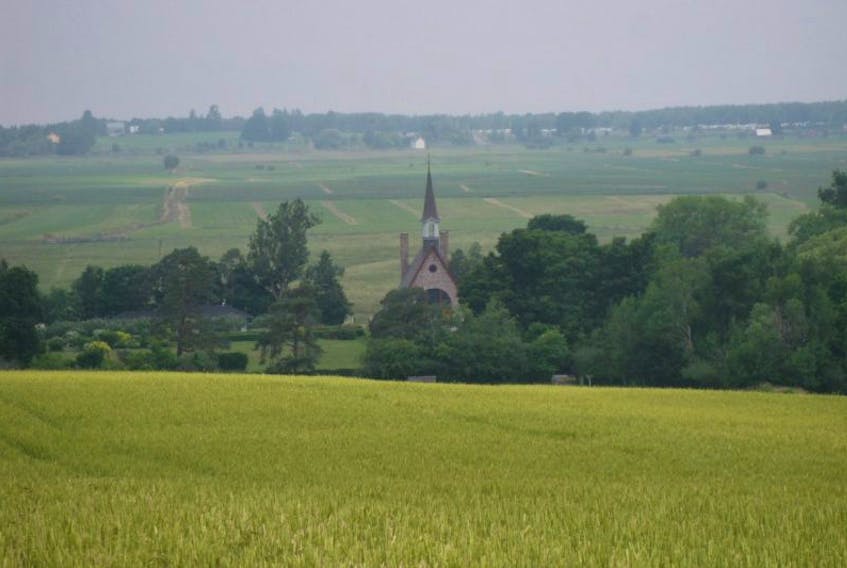Exactly 100 hundred years ago, Peter Herbin’s great-grandfather, John Frederic Herbin, sold a parcel of land and changed the face of Grand Pré forever.
Herbin and his wife Minnie sold 14 acres of largely open fields they’d purchased in 1907, to the Dominion Atlantic Railway on March 15, 1917.
That land was to became a National Historic Site and a place of pilgrimage for Acadians.
Claude DeGrâce, a former park superintendent, finds the anniversary worth noting because Herbin wanted to preserve the fields marked by what were known as an old Acadian well and willows.
With great foresight, Herbin put one condition on the sale that the Dominion Atlantic Railway Company and its assigns ‘in perpetuum' as a public park and be maintained, ornamented and developed in keeping with its historical association.''
Later that month, a meeting took place at the Monument-Lefebvre in Memramcook, N.B ., which is now also a national historic site, between a committee of the Société Nationale l’Assomption (SNA) and Mr. R. U. Parker of the Dominion Atlantic Railway. On March 23, the SNA’s executive committee met in Moncton and resolved to build a memorial church at Grand Pré was ratified and a fundraising campaign was launched.
Peter Herbin, who spent a number of years involved with UNESCO nomination, is very pleased about renewed interest in the site and the prospect of this summer’s celebration.
He believes the positive relationship between the Mi’kmaq people and the Acadians set the tone for what was to become Canada.
Proud of the role J.F. Herbin played in history, he says, the park “means an awful lot of us.”
Over the years, Herbin notes, the family have received many, many positive comments about their patriarch from members of the Acadian diaspora. He continues to operate the Wolfville store that J.F. Herbin founded.
Did you know?
Born in Windsor in 1860, J.F. Herbin’s mother was Acadian. He came to Wolfville to go to Acadia University because he wanted to be a writer, says his great grandson. He became a renowned jeweler, poet and historian.
The Société Nationale l’Assomption raised the funds to build the memorial church near what was believed to the be the site of the church of Saint-Charles. The federal government acquired the land in 1957.









